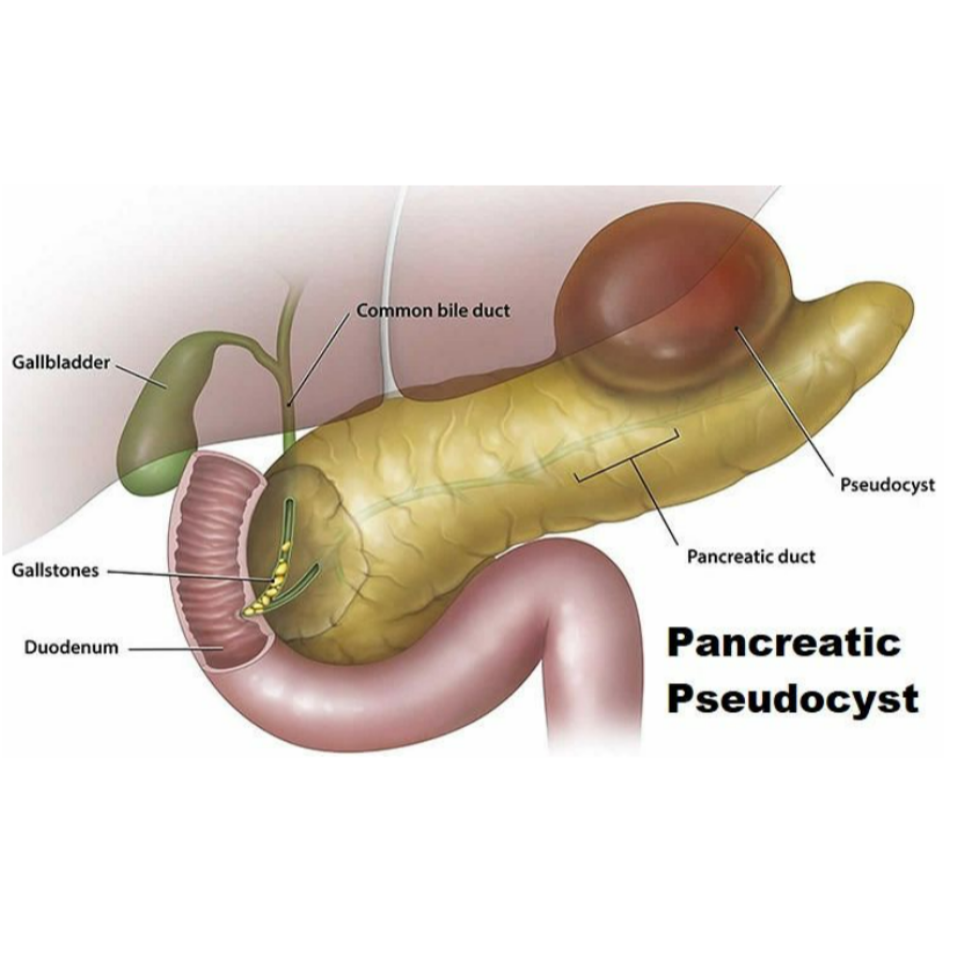+918048030554

This is your website preview.
Currently it only shows your basic business info. Start adding relevant business details such as description, images and products or services to gain your customers attention by using Boost 360 android app / iOS App / web portal.
Pancreatic Pseudocyst A pancreatic pseudocyst is...

Pancreatic Pseudocyst A pancreatic pseudocyst is a fluid-filled sac that forms in the abdomen, usually as a complication of pancreatitis, which is inflammation of the pancreas. Unlike true cysts, pseudocysts lack a true epithelial lining and are instead surrounded by fibrous or granulation tissue. They are typically filled with pancreatic enzymes, blood, and necrotic tissue. Pseudocysts often develop after an episode of acute pancreatitis or during chronic pancreatitis. Alcohol abuse and gallstones are common causes of pancreatitis and, consequently, pseudocyst formation. Trauma to the pancreas can also lead to the development of a pseudocyst. Symptoms of a pancreatic pseudocyst can vary depending on its size and location. Small pseudocysts may not cause symptoms and can resolve spontaneously. Larger pseudocysts, however, can cause abdominal pain, bloating, nausea, vomiting, and a palpable mass. Complications may include infection, rupture, internal bleeding, or obstruction of nearby organs like the stomach or bile ducts. Diagnosis is typically made through imaging studies such as ultrasound, CT scan, or MRI. These tests help determine the size, location, and contents of the pseudocyst. Blood tests may also be used to assess pancreatic enzyme levels and overall health. Treatment depends on the size and symptoms. Small, asymptomatic pseudocysts may only require observation. Larger or symptomatic pseudocysts may need drainage, which can be performed endoscopically, percutaneously, or surgically. Infected pseudocysts may require antibiotics and more urgent drainage. With appropriate management, the prognosis is generally good, although recurrence is possible, especially in cases of chronic pancreatitis. Lifestyle changes, such as avoiding alcohol and following a low-fat diet, are important in preventing further episodes of pancreatitis and pseudocyst formation. Regular follow-up and imaging are often necessary to monitor the resolution or progression of the pseudocyst. Early detection and treatment help reduce the risk of complications. . . . Consult us today.👇 Contact Us📞 +91 7303055137 Email:care.cure.clinic.2020@gmail.com

